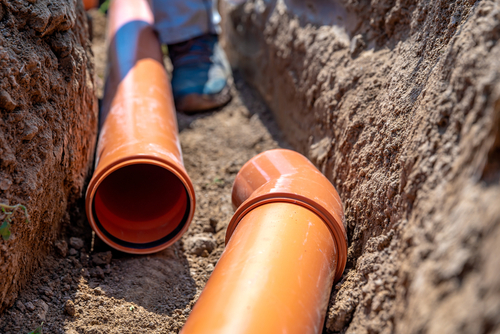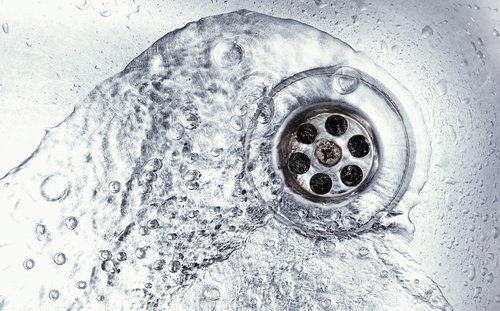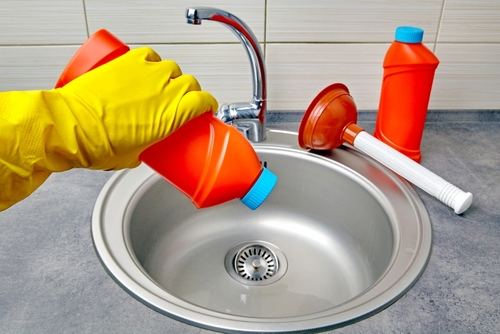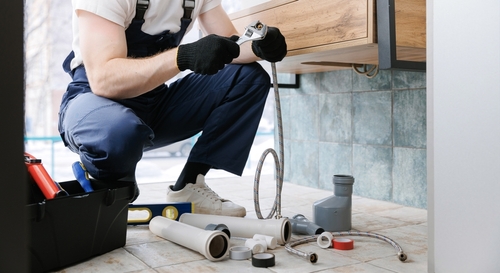Drains and pipes are critical components of any plumbing system, responsible for carrying wastewater away from homes and buildings. Understanding how drains and pipes work, as well as how to maintain them, is essential for preventing clogs, leaks, and other plumbing issues. In this guide, we explore the importance of drains and pipes and provide tips for keeping your plumbing system in top condition.
The Role of Drains and Pipes
Drains and pipes serve the vital function of transporting wastewater from sinks, showers, toilets, and appliances to the sewer system or septic tank. Drains collect used water and waste materials, while pipes carry these substances away from the property, preventing backups and flooding. Properly functioning drains and pipes are essential for maintaining hygiene, preventing water damage, and ensuring the efficient operation of plumbing fixtures and appliances.

Types of Drains and Pipes
Various types of drains and pipes are utilized in plumbing systems to manage water flow effectively. Drains include floor drains, sink drains, shower drains, and toilet drains, each serving specific purposes in collecting wastewater. Pipes are typically made of materials like PVC, copper, or galvanized steel, chosen based on their durability and suitability for different applications. PVC pipes are lightweight and resistant to corrosion, while copper pipes offer excellent conductivity for water supply lines. Galvanized steel pipes, although less common now, were previously used but are prone to corrosion. Understanding these variations is essential for designing efficient plumbing systems.
Common Plumbing Issues
Common plumbing issues can disrupt daily life and require immediate attention to prevent further damage. These issues include leaky faucets, which not only waste water but can also lead to higher water bills. Clogged drains are another common problem, caused by the accumulation of hair, soap scum, or food particles. Running toilets, characterized by continuous water flow after flushing, can also waste significant amounts of water if left unchecked. Low water pressure can make tasks like showering frustrating and may stem from mineral buildup in pipes or issues with the water supply. Additionally, water heater problems, frozen pipes, sump pump failure, leaking pipes, sewer line backups, and water quality issues are common plumbing concerns that require timely attention to avoid costly repairs and water damage.
Tips for Maintenance
Regular maintenance is essential for keeping your plumbing system in top condition. Inspect fixtures for leaks and signs of wear regularly. Use drain strainers to prevent clogs, and flush your water heater annually to remove sediment buildup. Insulate pipes in cold weather to prevent freezing, and know the location of your water main for emergencies. Consider scheduling annual professional inspections to catch issues early. These simple steps can help prevent costly plumbing problems and ensure the longevity of your system.

Environmental Impact
In addition to preventing water damage within the home, proper maintenance of drains and pipes plays a crucial role in reducing the environmental impact of plumbing systems. By proactively addressing issues such as leaks and minimizing water wastage, homeowners can actively contribute to water conservation efforts and decrease their ecological footprint. Through these efforts, individuals can play a significant role in preserving precious water resources and promoting sustainability for future generations.
Health and Safety Considerations
The importance of well-maintained drains and pipes extends beyond mere functionality; it directly impacts the health and safety of property occupants. Clogged drains and leaky pipes create ideal environments for harmful bacteria and mold growth, posing significant health risks to residents. Furthermore, faulty plumbing systems have the potential to compromise water quality, leading to water contamination and further jeopardizing the well-being of inhabitants. Therefore, prioritizing regular maintenance and prompt resolution of plumbing issues is essential for preserving a safe and healthy living environment for all occupants.
DIY Maintenance Techniques
Homeowners have the opportunity to employ a range of do-it-yourself (DIY) maintenance techniques to uphold the optimal condition of their drains and pipes between professional inspections. These methods encompass utilizing eco-friendly drain cleaners, establishing regular pipe flushing routines, and adhering to proper disposal habits to prevent clogs and blockages. By incorporating these proactive measures into their maintenance regimen, homeowners can promote the longevity and efficiency of their plumbing systems while minimizing the likelihood of costly repairs and disruptions to daily life.

Emergency Preparedness
Being prepared to address plumbing emergencies is crucial for homeowners to minimize potential damage and swiftly resolve issues. Establishing an emergency plan, which includes knowing how to shut off the water supply in the event of leaks or pipe bursts, is essential for mitigating water damage and reducing associated repair costs. By taking proactive measures and familiarizing themselves with emergency procedures, homeowners can effectively safeguard their property and maintain peace of mind in the face of unforeseen plumbing challenges.
Upgrading Plumbing Systems
With the continuous evolution of technology, homeowners have the opportunity to upgrade their plumbing systems to achieve greater efficiency, water conservation, and overall performance. Implementing upgrades such as installing low-flow fixtures, energy-efficient water heaters, or modern pipe materials can lead to significant cost savings and environmental benefits over time. By embracing these advancements, homeowners not only enhance the functionality of their plumbing systems but also contribute to sustainability efforts and reduce their carbon footprint for a greener future.
Professional Assistance
While many homeowners possess basic plumbing skills, complex issues like hidden leaks, sewer line problems, or intricate system upgrades require the expertise of licensed professionals. Plumbers have the training, tools, and experience to diagnose and address such challenges effectively. Entrusting them with routine inspections, repairs, and upgrades ensures that drains and pipes are maintained correctly, promoting their longevity and optimal performance in the long term.

Conclusion
In conclusion, drains and pipes are essential components of any plumbing system, responsible for transporting wastewater away from properties and preventing water damage and contamination. By understanding the role of drains and pipes, recognizing common plumbing issues, and implementing proper maintenance practices, homeowners can ensure the longevity and efficiency of their plumbing systems for years to come.

